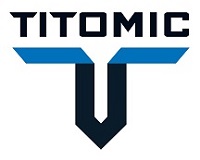Technologies and tools for a manufacturing transformation: Industry 4.0, skills and SMEs by David Fox and Inu Rana

Today, @AuManufacturing's “technologies and tools…” series turns to technology adoption among SMEs. Inu Rana and David Fox look at some of the difficulties and benefits of increased digitalisation for smaller companies, and what it means in practical terms.
There is no denying that technology is making an impact on manufacturing worldwide, helping the industry keep pace with changes in customer demand and emerging social trends. Yet the Australian manufacturing sector tends to have polarised views on technology relevance, from “not applicable” to “mission critical”. It is no wonder there is an ongoing dialogue about what technologies might underpin a revival in the context of Australia’s manufacturing.
There is an acceptance that technologies can and do change societies and economies. However, such change is typically slow. That said, the recent pivot to home-schooling, online learning and teacher communication illustrated our capacity to adopt, en masse, and quickly. So, the debate about technology in manufacturing should not reside in the realm of sector relevance but look more broadly at the pillars that may benefit from uptake, and how change can leverage opportunities.
The re-emergence of Australian manufacturing as a sector that matters has been a long conversation and given renewed focus in the context of the current pandemic.
There are two additional facets to this opportunity: first, a fresh perception of manufacturing at the community level (i.e. in schools and around the dinner table) as a skilled career, and secondly, a step change by smaller manufacturers – which employ the majority of manufacturing workers – in their ways of operating. The evolution of the manufacturing brand and delivery on this through the workplace will attract the curious talent required to support a technology-led manufacturing resurgence.
So, what are some of these technologies, and how does talent growth fit into the conversation?
Regardless of manufacturing scale or output, even a shallow dive into the Industry 4.0 domain will highlight the importance of application context and the advantages that data acquisition can bring to the table.
Data on its own is not particularly useful to the average manufacturer and their skill set, nor is data in isolation. So before moving past “go”, there are some key skills and technologies which will likely become standard knowledge, namely understanding system connectivity through Application Programming Interfaces (API) and data visualisation via the power of business intelligence tools. Capability across these two ‘user facing’ foundational technologies is certain to become critical to any business seeking productivity and supply chain integration.
Adventuring deeper into technology specifics related to a manufacturing revival, the question becomes more context-driven, and will vary from business to business. But the overarching domain of artificial intelligence stemming from computer science will definitely have a role, through either its machine or symbolic learning branches, as they are both highly adaptable technologies and will find a meaningful place in just about any process, product or service offering. While these technologies will take their place in the depths of manufacturing systems, they are not going to do the making in manufacturing.
Product-facing technologies that will support hard manufacturing activities will be those that offer flexibility and integration to support data feeds and complement new roles, customer and user expectations. Additive manufacturing, cobots, processing and autonomous devices will likely lead the way as they are scalable and adaptive to service everything, from the jobbing SME in how it could manage its stores, to the customised mass production environment, to batch processing inside multinationals.
The final suite of technologies essential to systems integration are the acquisition (sensor) and communication-facing technologies, such as the ‘Open Platform Communications United Architecture’ (OPC UA) along with backbone infrastructure networks for transmission.
The Industrial Internet of Things requires the convergence of Operational Technology and Information Technology to capitalise on smart products and big data through interoperability and mobility. The significance of developing capability across these technologies will ensure locally manufactured products and their spin-off service business models will integrate with accepted global systems.
Technologies themselves are only one pillar of the manufacturing paradigm shift Australia will need to embrace if it wants to play globally.
Another critical component is adapting the Australian manufacturing brand and ways of working to entice the talent necessary to bring these technologies to life.
With small manufacturing businesses making up 95 per cent of the sector, and generally representing a limited uptake in technology, addressing the entwined technology and future of work expectations poses an exciting new challenge.
Developing capability to address digitisation of manufacturing at a national scale, and to navigate new product and service landscapes, will, on the one hand, require a focus on up-skilling and reskilling of the existing workforce, and on the other preparing and recruiting generation next.
Making decisions to guide technology pathways in a world where legacy systems have primarily driven our ways of working until now is problematic. Technological change forces and empowers, in equal measure, continual learning and skilling. While technology integrators can support new systems, having a fundamental understanding of the relationships between technologies that support operations and smart products requires the re-skilling of old heads too.
Agility is the backbone of digital transformation; embracing new business models, continual innovation, adopting breakout technologies as they are created and the ability to keep pace in the time of transformation are critical for success.
Leadership is the main point of influence for development of values and structures to support disruptive change. A leader does not necessarily need to be the expert, but they do need to make choices, and like any business decisions, such choices should be made based on an informed view, with the capacity to take on board expert opinion, so a technology uptake is beneficial in the context of a business’ commercial purpose and its values.
The revival of Australian manufacturing is an ambition that is multifaceted; it will require a nationwide strategy, support structures and policies on a national level to set the foundation. Further, without the understanding and awareness of what manufacturing means going forward, the advanced workforce of the future and the skills required for the Australian context are at risk of falling behind.
Industry 4.0 will require advanced technological skills and education in newer emerging technologies as well as advanced analytical skills and data. To address the rapidly changing demand in skills and growing demand for digital talent, industries and academia must come together to reshape educational training and implement reskilling programmes with a focus on flexibility.
Western Sydney, with its traditions and roots in manufacturing, is an ideal case for embracing a transformation of this nature. The region is a fast-growing economy currently producing $97 billion in Gross Regional Product (GRP) with up to 16% of this GRP coming from a manufacturing base that represents a cross-sectional sample of nationwide manufacturing.
Western Sydney is well suited to develop as a Smart Manufacturing Region as it hosts a concentration of SMEs that are eager to transform. and whose small size confers advantages of agility, risk taking and the ability to quickly evolve and change.
This strong Western Sydney SME base, supported by locally focussed education providers, can drive the much-needed elevation in industry education, setting the foundation for delivering a more agile and skilled workforce we need so desperately to benefit from I4.0 theory.
Inu Rana is Senior Business Advisor at Western Sydney University's Launch Pad.
David Fox is General Manager at LA Services.

 @AuManufacturing’s Technologies and tools for a manufacturing transformation series is brought to you with the support of Titomic and the Advanced Manufacturing Growth Centre.
@AuManufacturing’s Technologies and tools for a manufacturing transformation series is brought to you with the support of Titomic and the Advanced Manufacturing Growth Centre.
Subscribe to our free @AuManufacturing newsletter here.
Topics Manufacturing News Technology
@aumanufacturing Sections
Analysis and Commentary Awards casino reviews Defence Gambling Manufacturing News Online Casino Podcast Technology Videos





